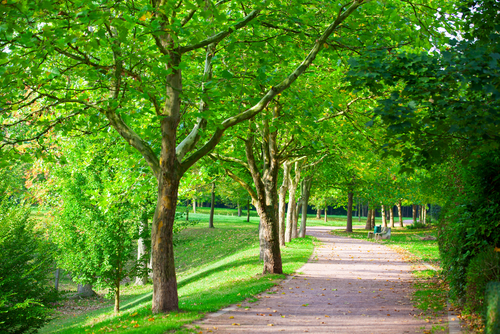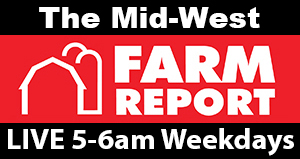
Private residential landowners in Wisconsin greatly see the trees on their properties as beneficial, according to the results of the Wisconsin Urban Landowner Survey. Beauty, shade and cooling, improved air quality, privacy, and making their neighborhood a more pleasant place to live were the top five benefits they cited.
As part of a joint project involving the University of Wisconsin-Madison College of Agricultural and Life Sciences, University of Wisconsin-Extension Cooperative Extension, Wisconsin Department of Natural Resources and the U.S. Forest Service, the survey was sent to 6,000 private residential landowners in Green Bay, Madison, Milwaukee and Wausau.
More than 1,700 landowners responded to provide insights about their attitudes toward tree care, concerns about tree risks and their tree management choices such as pruning and planting.
“While the primary goal of the survey was to gather information from urban residents, it was also a great opportunity to encourage people to think about their trees, their many benefits and how to take care of them. These trees are an important part of the wider urban forest in their communities and across the state,” says Bret Shaw, UW-Madison associate professor of life sciences communication and UW-Extension environmental communication specialist.
A majority of Wisconsin’s 42 million urban trees grow in residential areas and continue to face threats from storm events, diseases, pests such as Emerald Ash Borer, and development. Urban trees have been shown to help improve air quality, reduce energy costs and absorb storm water. They also provide various physical and mental health benefits, by encouraging recreation and enjoyment of the outdoors.
While there was wide agreement about the overall benefits of trees, the survey revealed significant differences in respondents’ assessments of tree-related risks depending on where they live. Suburban homeowners and those with larger properties have fewer concerns about property damage from trees. City homeowners, with smaller properties in more densely populated areas, believe trees pose a greater risk of physical damage to their property. These risks, however, can be reduced through proactive tree care.
The survey also revealed that respondents seek advice and trust information provided by private tree care professionals, followed by their family and friends, and then by municipal, state and nonprofit professionals. These results suggest that municipalities and government authorities would be well-served by communicating their tree care messages through professional arborists and personal networks such as neighborhood groups, as people are most likely to act on advice given by those they know and trust.
“It’s great to have a better understanding of how urban homeowners approach decisions related to planting, caring for, keeping or removing their trees,” says Katy Thostenson, DNR division of forestry social science analyst.
Funding for the Wisconsin Urban Landowner Survey project was provided by a U.S. Forest Service grant and the Wisconsin Department of Natural Resources.
The full Wisconsin Urban Landowner Survey report can be found at, http://forestryinsights.org/urban-forestry/.
